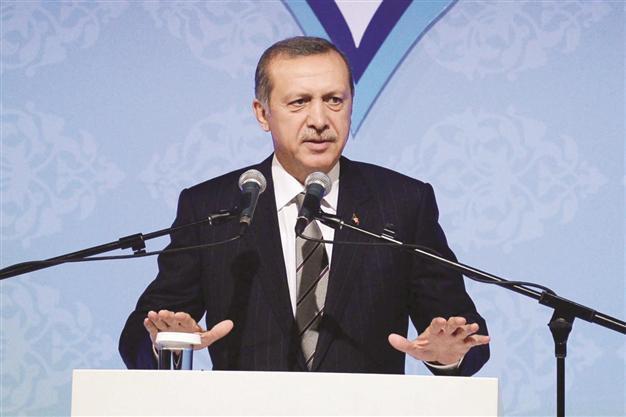Turkish policymakers at bay in economic area
ISTANBUL - Reuters

Rattled by weeks of anti-government protests, the last thing PM Recep Tayyip Erdoğan needs is an election cycle next year with a weak economy team. AA photo
With a powerful prime minister bent on pumping up growth ahead of elections but a sliding currency and rising borrowing costs, Turkish policymakers are caught between a rock and a hard place.
Rattled by weeks of anti-government protests and with a peace initiative for Kurdish militants looking increasingly fragile, the last thing Prime Minister Recep Tayyip Erdoğan needs with an election cycle starting next year is an economic slowdown.
His rhetoric has become increasingly populist in recent weeks, vowing to “choke” speculators who he said were growing rich off “the sweat of the people”, and blaming a “high interest rate lobby” for seeking to undermine Turkey’s growth prospects.
Such words from a leader who has transformed the economy over the past decade, overseeing some of Europe’s fastest growth and a near tripling of Turks’ nominal wealth, has unnerved investors who have long bought in to the Turkey rising story.
“The Turkey narrative has certainly suffered,” said Christian Keller, a former IMF representative in Turkey and now a senior economist at Barclays Capital in London.
Erdoğan and the ruling AK Party he founded have built their reputation on Turkey’s economic transformation, winning three successive parliamentary elections over the past decade as a burgeoning middle class grew richer.
But his determination to maintain that record has laid bare a rift between fellow populists such as Economy Minister Zafar Çağlayan, a vocal critic of the central bank, and more moderate and voices such as Deputy Prime Minister Ali Babacan, viewed as a steadier hand trusted by the markets.
Concern about the U.S. Federal Reserve’s planned withdrawal of monetary stimulus, combined with Turkey’s domestic unrest, sent the lira tumbling to its weakest ever this month and are doing little to support growth prospects.
Babacan acknowledged on Wednesday that any downward revision to the government’s 4 percent growth forecast this year should come as “no surprise”.
After Babacan? “Although Erdoğan has a lot to gain from this language for domestic political purposes, taking concrete action is actually counterproductive for the country’s economy which is desperate for external funding to finance its still-large current account deficit,” said Naz Masraff, Europe analyst at Eurasia Group.
“The concern is that Erdoğan is now surrounded by people like Yiğit Bulut, and those that represent more mainstream views, such as Babacan, are very much sidelined.”
Babacan has been a key figure in the cabinet since the AK Party came to power, overseeing the economy for all but a brief period when he served as foreign minister, and winning a reputation for prudent policy in the years after a 2001 crisis.
But he is serving his last term under party rules and there are questions over how strongly he will be able to defend the case for price stability and fiscal prudence as the polls loom.
Who succeeds him will be telling.
“Erdoğan has been determining economic priorities and insists on their enforcement. When things get problematic then Babacan intervenes to fix the situation,” said Uğur Gürses, Radikal newspaper columnist and a former central banker.
“He is the ‘emergency person on call’ ... Other economy-oriented ministers are following Erdoğan’s lead, not Babacan’s. And this is creating mixed messages.”
